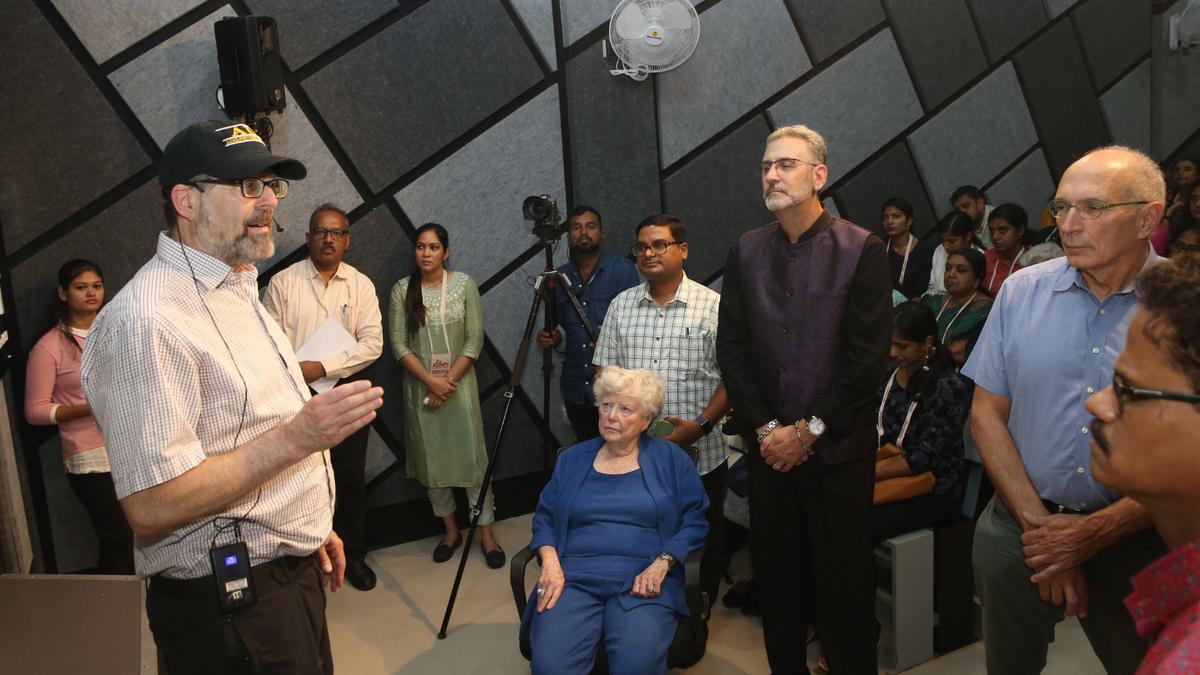
Society must stop seeing autism as a handicap, says expert
The Hindu
In a world where society still sees autism as a handicap, knowing and understanding the disability can change this mindset, according to Dr. Stephen Mark Shore, Clinical Associate Professor, Adelphi University, New York.
In a world where society still sees autism as a handicap, knowing and understanding the disability can change this mindset, according to Dr. Stephen Mark Shore, Clinical Associate Professor, Adelphi University, New York.
Speaking on the second day of the three-day International Conference on Comprehensive Education (ICCE) for Children with Special Needs, at the Different Art Centre here on Thursday, he said that understanding the abilities of the autism-affected and guiding them according to their interests, would open up vast possibilities for them. Society needs to stop seeing them as lesser humans or disabled, he added.
“Autism is not a medical condition. Rather, we need to accept their differences and prepare a place for them in society. Autistic children have different abilities. They can be brought to the forefront of society by identifying these abilities and training them in a focused manner,” Dr. Shore said.
“Many autistic people today are accomplished in various fields. Many are better than the ‘ordinary’ people at the workplace. People affected by autism are very particular about what they do,” he said, pointing to his childhood hobby of repairing watches. He elaborated on his life, saying that working in a bicycle repair shop during his college days and later repairing bicycles for students on the campus, and thereby earning an income proved to him that autism was not an impediment at all.
Earlier, leading a workshop as part of the international conference, Dr. Stephen Mark Shore presented a detailed awareness programme on different types of disabilities, including autism, and the training to be given to children in this category.
Parents of differently abled children need to come together so as to devise projects for such children, and get them implemented through government intervention, said Anita Frey, Clinical Associate Professor at Adelphi University, New York. Participating in a discussion held as part of the conference, Ms. Frey spoke about the impact of family environment on the development of differently abled children and called for forming special teacher-parent associations for the parents of differently abled children in schools. Such organisations should jointly devise economic and social assistance schemes, she proposed.











